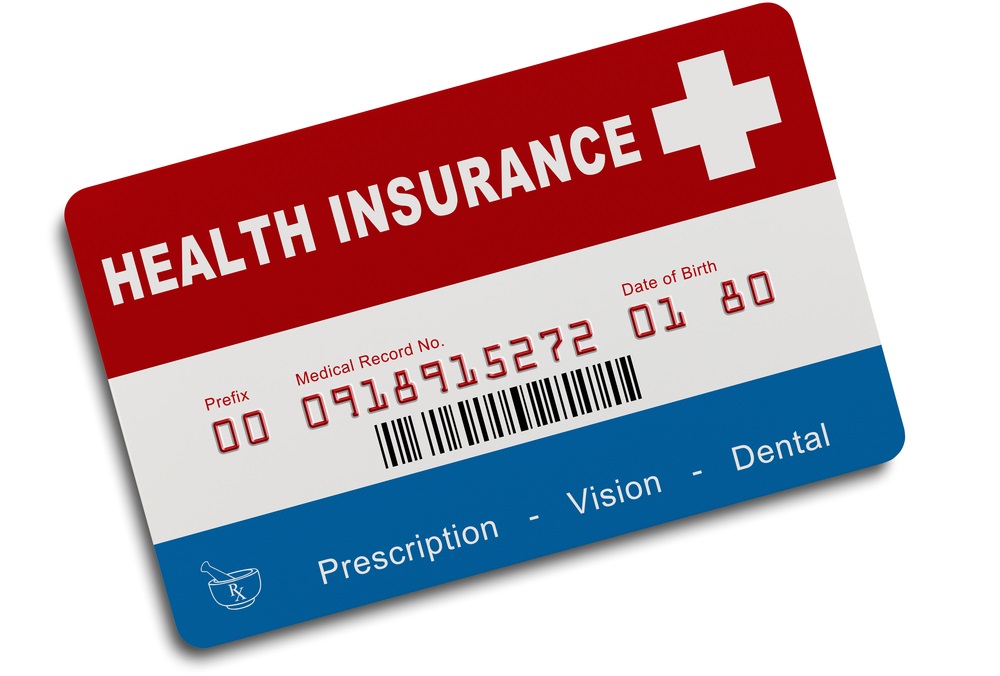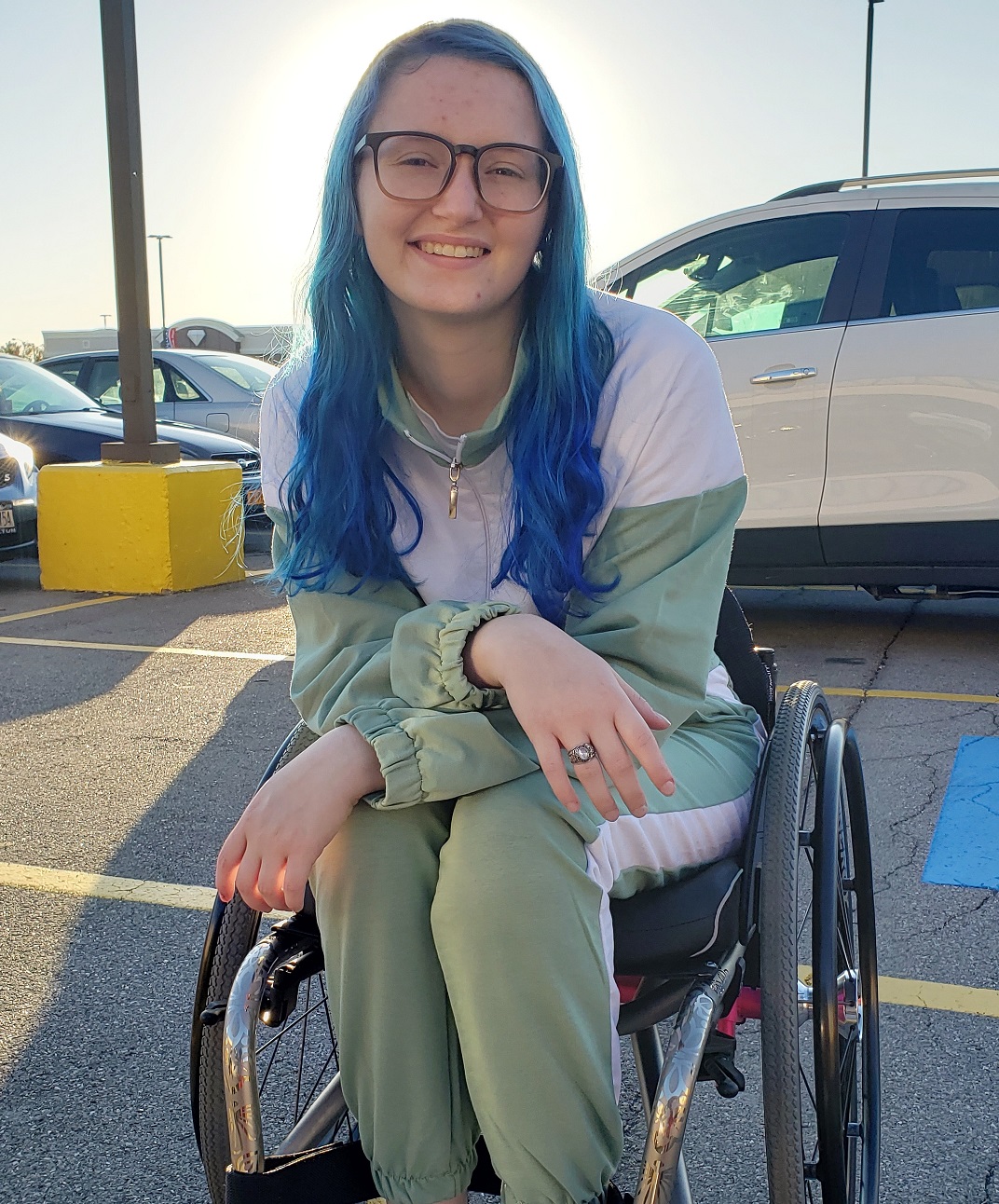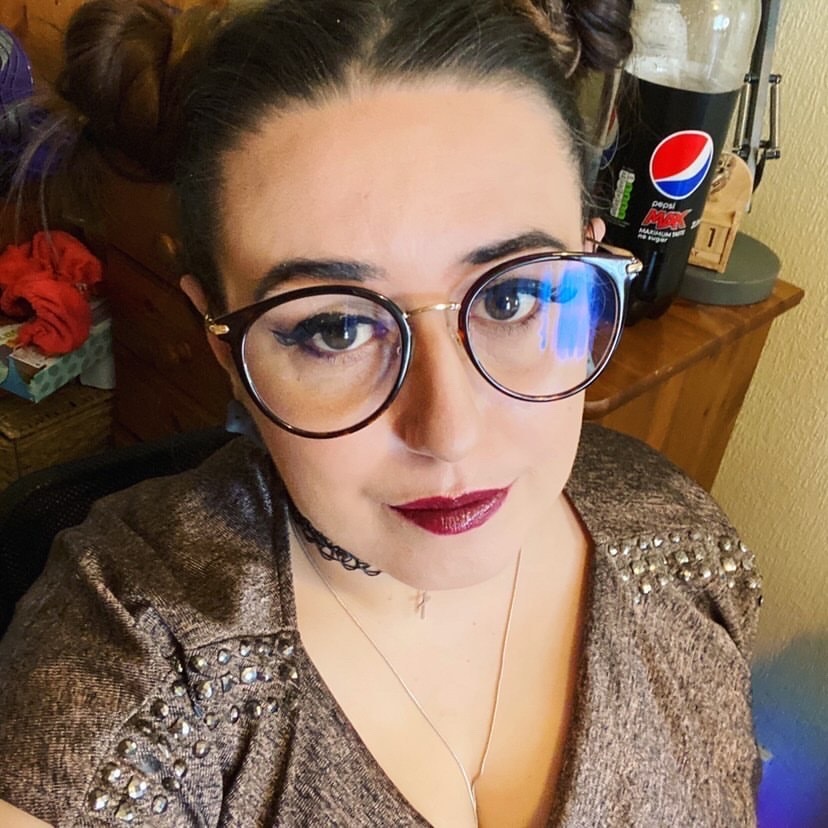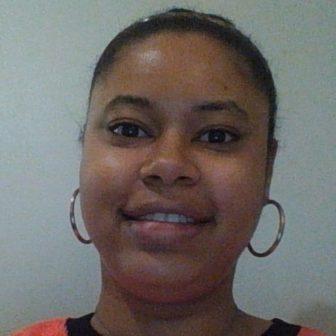 MEGA PIXEL/SHUTTERSTOCK
MEGA PIXEL/SHUTTERSTOCK
Having health insurance in this country has been a major topic of discussion in recent years. You hear about it on the news all the time, especially from elected officials. With so many people needing health care during this pandemic, I wanted to know what role health insurance has played in the lives of young people with disabilities over the past nine months.
I first spoke with Madison Russell, who is 20 and lives in Rochester, New York. Russell lives with syringomyelia, which causes an incomplete spinal cord injury, and two autoimmune conditions, Sjogren’s syndrome and juvenile rheumatoid arthritis. Sjogren’s syndrome causes extreme dryness in the mouth and eyes, and juvenile rheumatoid arthritis is a chronic autoimmune inflammatory disease that affects the joints.

Madison Russell
She said she is very involved in the disabled community and is proud to be disabled. She attends weekly dance classes with other women in wheelchairs and does advocacy work surrounding spinal cord injury. She is a member of the United Spinal Association and the Rochester Spinal Association.
“I have been able to get rapid testing done without worrying about how to pay for it,” Russell said. “If I got COVID I would still end up with medical debt, but not nearly as much as I would if I didn’t have insurance.”
Even with insurance, she has seen the pandemic’s effect on getting care.
“For me, because my spinal cord disease is very unstable, COVID has made getting health care very difficult,” Russell said. “Delays in diagnosis and treatment can have lifelong consequences for people with my condition. I have seen delays with neurology, neurosurgery, imaging and pain management clinics, with some just completely shutting down due to COVID. Luckily, my insurance covers video visits, so for some things I have still been able to get timely treatment, but I have seen a delay in almost every part of my health care.”
As an American citizen, I have heard the romanticized versions of what it is like to get health care in other countries. Many other nations have universal free health care, unlike the U.S., where each person is financially responsible for their own medical needs. I spoke to one young woman who told me what it is like to get medical attention in her country during COVID-19.
Naomi Simm is 30 and lives in Mirfield, West Yorkshire, England. She has several neurological conditions including functional neurological disorder, which can cause weakness, movement disorders, sensory symptoms and blackouts; myalgic encephalomyelitis, which causes chronic fatigue; and non-epileptic attack disorder, which causes seizures. She is currently awaiting diagnosis for two other conditions.

Naomi Simm
She is active in an online group for people with functional neurological disorder and has made several connections with people who chat and share their stories. She uses her social media pages to share resources that bring awareness to (and hopefully end) ableism. As a British resident, her experience with health insurance is nonexistent.
“Our health care is free so we don’t need it,” Simm said.
While the British do not have to pay for medical attention, hospitals and doctors have still seen the effects of COVID-19, she said.
“I have had to attend the emergency room in [the] hospital a few times whilst COVID has been around, and it is a very scary place to be when you’re shielding,” Simm said. “They are very good though at testing and keeping everyone apart. It has affected the care massively though. Staff are overrun and just don’t have the time to deal with everyone, which just means that if you have multiple disabilities and need to stay in, the doctors don’t have time to write up your usual medications, etc. So your care is massively affected.”
She commented on the struggles youth with disabilities are facing during this global emergency.
“I think young people with disabilities have massively been [affected] by COVID. All sense of community is being lost due to having to stay inside. The public is also neglecting disabled people, like blocking off disabled parking spaces to put queues or tables outside for cafes … Accessibility has been made for all the people really quickly and it just goes to show that people just weren’t willing to put it in place for the disabled community alone,” Simm said.
Russell spoke about the fact that youth with underlying conditions have had to take extra precautions because the disease poses a higher threat for them.
“For many youth with disabilities, they haven’t been able to go back to school in-person with their peers,” she said. “In places without mask mandates, or with rising numbers of cases, many disabled youth are forced to stay isolated. Some haven’t left their homes since March, because going out and potentially being exposed to COVID could be deadly.”
Health insurance, although necessary, is still a luxury to some people in this country. For those who have it, going through a public pandemic like COVID-19, although scary, does not come with the added stress of having to pay outrageous medical bills. If we ever do take a cue from countries like the United Kingdom and create a system of free universal health care, we may find that facing something like a pandemic is more manageable and less threatening to Americans.

Deandra Mouzon
Deandra Mouzon is a Georgia-based journalist who received a B.A. in journalism from CUNY’s York College. Currently she is working on a publication about youth with disabilities.































